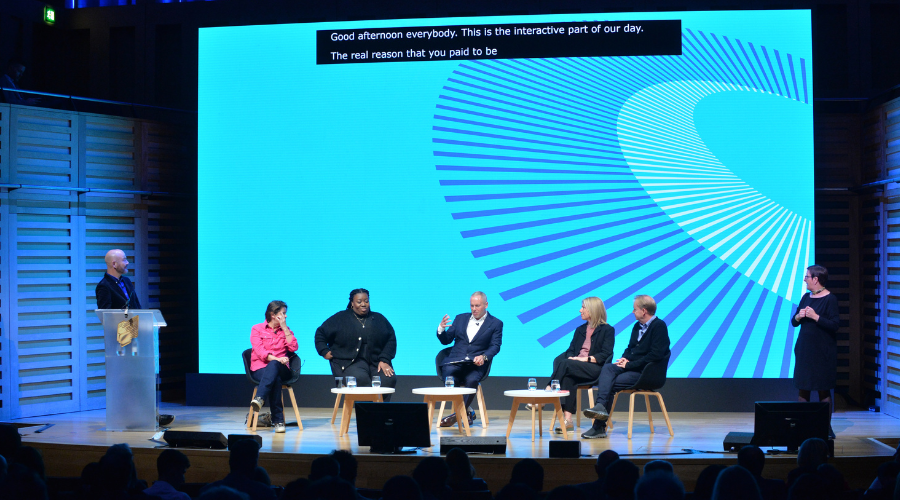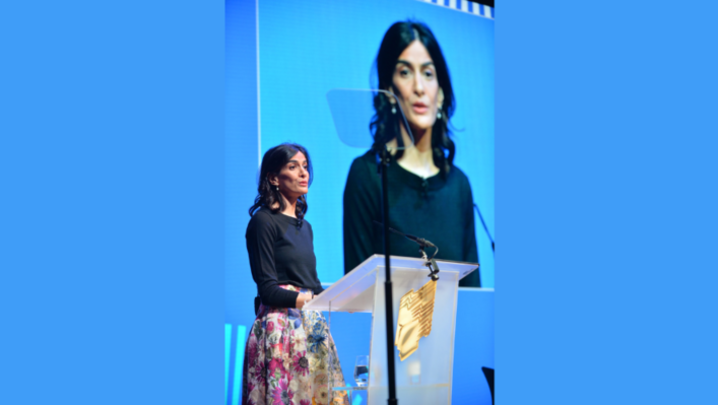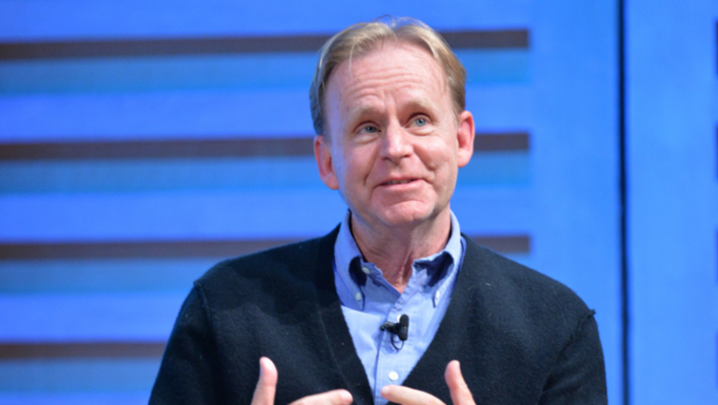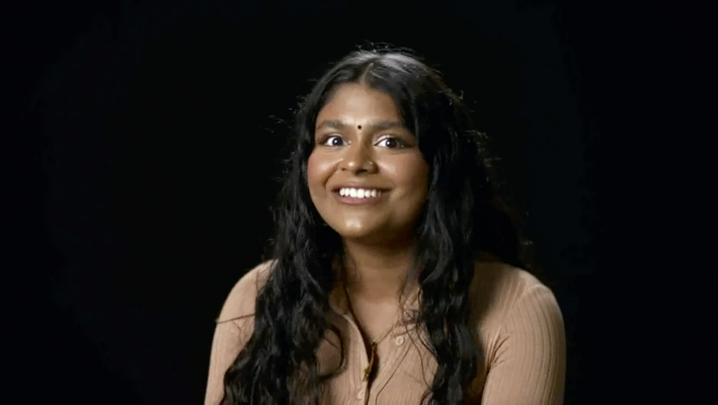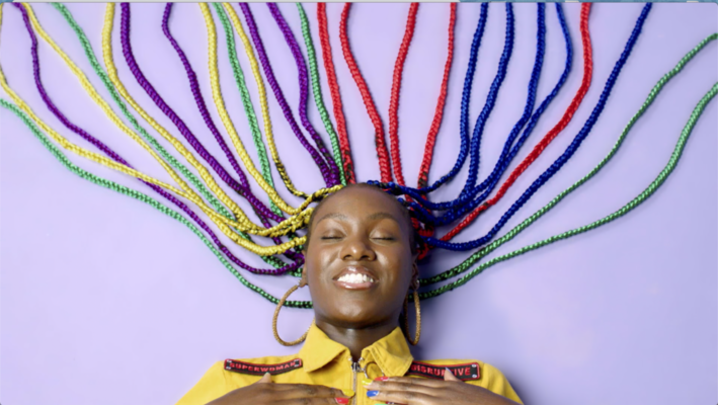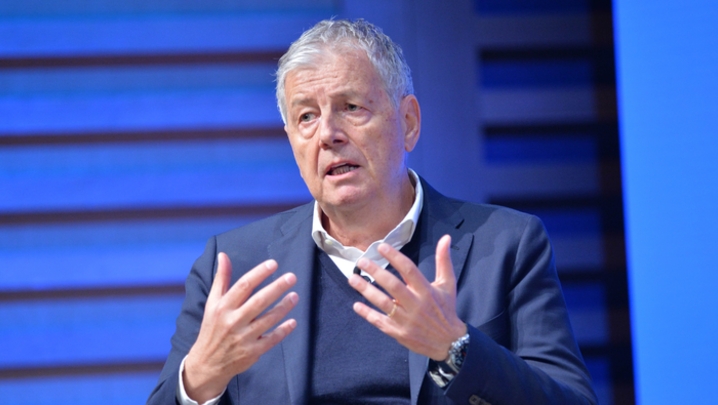Factual entertainment offers value for money but it is hard for new formats to break through
“Corporate subconscious bias” was tested by lawyer and presenter Rob Rinder in a session designed to challenge TV folk’s preconceptions about the world of global formats and discover what it takes to create a hit.
As Rinder put it: “There seems to be a general consensus that we should be investing in drama, that this is where the heart of commercial value is in television.
“But this panel [will] seek to demonstrate that there’s a global dominance elsewhere – and that’s in the popularity of unscripted television.”
Questions were posed to the panellists, Natalka Znak, Clare Laycock, Gama Gbio and Kevin Lygo, while the audience voted via the RTS app.
The first question from media analyst Doug Wood was, “What is the most successful unscripted format ever made”, based on the number of adaptations: Got Talent, Who Wants to Be a Millionaire, MasterChef or The X Factor?
Wood pointed out that all four were made in the UK, “which shows the heritage of the UK unscripted format market”. Lygo was the only panellist to pick the correct answer: Millionaire.
The way a format is made is often what makes it sell well, explained Lygo: “If you take The Masked Singer… that was pitched to everyone and turned down, then came back to me. I thought, ‘Oh a singing competition with people dressed up in silly costumes is going to be sort of Christopher Biggins in Guildford panto’ – and then I was shown a clip of the Korean show and thought, ‘I get it!’.
“So, it’s the doing, not really the idea, that makes that particular show and I think that applies to lots of formats.”
According to Laycock, “To be successful, it has to work in all our key markets… something like 90 Day Fiancé is a brilliant example of that. It’s taken 10 years of heritage and different spin-offs to get those mega-fans in.”
Gbio pointed out that most people did not set out thinking they were going to create a mega-hit format; that usually came afterwards.
Rinder noted that this is very much “a time of filling linear schedules with new versions of the old – reboots”. He asked Lygo – who was Channel 4’s director of television when the station axed Big Brother, the king of reality shows – why ITV had now decided to revive it.
The Lygo of today said: “We learned from Love Island that when these shows work, they’re incredibly important to a commercial broadcaster like ITV. Love Island paved the way for busting the myth recently that teenagers don’t watch television. Every night, there they are – watching a big old thing on ITV2. If Natalka gets Big Brother right, it could do a similar job for us.”
Znak, who is executive producing Big Brother, responded: “I think it’s a hard job to reboot such a popular show… TV has moved on since Big Brother was first on TV and we used to just love watching people eat their cornflakes. The trick is to keep the heart of it, but make it feel modern – it has to appeal.
“We’re having so many conversations with the hardcore fans telling us, ‘Don’t touch it, just do this, you’ve got to keep everything.’ I think the hardcore fans will watch it [but] I also need all the people who’ve never watched Big Brother. Those are the people we need to appeal to. It’ll be brilliant, though.”
Rinder admitted that he was a fan of Beauty and the Geek, which Discovery is reviving, despite it feeling like an idea “that’s socially counterintuitive”.
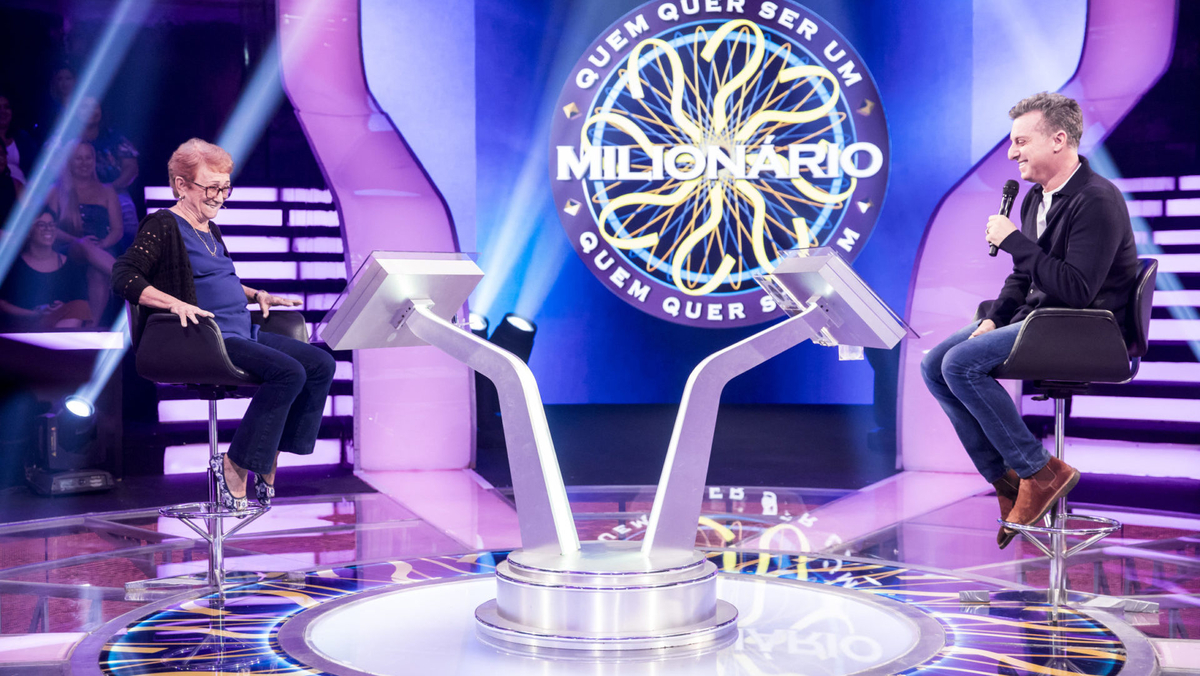
(credit: TV Globo)
Laycock emphasised how much things had changed since it was last on E4, in 2006, specifically: “… the rise of the geek; they didn’t used to be as cool as they are now. Today, they’re actually paying all our salaries.”
Rinder asked Gbio what the risks were with a reboot. She said it was tricky trying to balance “the hardcore fans” with “the new gen”, “finding that middle balance and the essence of the original format and what everyone loved about it, but also adding a layer on to make it more current”.
In response to Rinder asking if there were no new ideas, Lygo said: “We do continuously add new shows, but we’re also quite brutal. I have to admit, when they don’t work in one series, we’ll probably kill it.
“In the old days… because everything had higher ratings, you could give something time to breathe and adapt. That’s why I almost never do a new entertainment show without a fully funded proper pilot, and sometimes more than one.” But he pointed out that new shows such as Starstruck and The 1% Club were returning.
Wood then asked which format had the most new adaptations in 2021: Love Island, The Masked Singer, The Voice or I Can See Your Voice? The answer was The Masked Singer, which was in 41 markets, signalling that the focus was shifting from Europe to Asia, added Wood.
Another ingredient of a successful format can be cost. Lygo said Come Dine with Me “is in a million countries” partly because “it is a very tasty show”, but also because it “is so unbelievably cheap” to make. “That’s the beauty of Millionaire – nobody usually wins the million and it’s just two people in seats. So the cost of a show would be a very mindful consideration if you’re thinking about global domination.”
Another element, said Gbio, is how much a show can “cut through” for a network. “Some ask what’s going to make the papers and the news,” she explained, pointing out the success of dating show FBoy Island, which did well in the US and is now on BBC iPlayer.
Wood then asked the panellists and audience which was the highest-rated linear series for 16- to 34-year-olds last year: I’m a Celebrity… Get Me Out of Here!, Line of Duty, The Great British Bake Off or Love Island? The answer was I’m a Celebrity….
Lygo said he went for the jungle reality juggernaut because it was the biggest show of the four by volume, so more 16- to 34-year-olds would be watching it, but also noted that “Love Island will have the smallest proportion of viewers over 40 so, for a commercial broadcaster, there’s very little wastage for an advertiser.”
“Scripted grabs all the headlines”, said Wood, but “What proportion does unscripted account for: 50%, 70%, 80% or 90% of the total number of new TV series being launched this year in the UK?” Lygo answered – again correctly: “We can’t afford that much drama, so I go for 90%.”
Wood then asked: “Which territory originated the largest volume of unscripted format movers: the UK, the Netherlands, South Korea or the US,” to which all the panellists voted, correctly, for the UK.
Znak concluded that “the number of UK formats being sold” was still high, but things were far harder than in “the golden days, when you could get rich off formats – but it still works and people still buy interesting stuff.”
Session Eight, ‘Who wants to be a millionaire? Everything you always wanted to know about global formats’, featured: Gama Gbio, development producer – entertainment, Expectation; Clare Laycock, SVP, content and planning, Warner Bros. Discovery UK; Kevin Lygo, MD, media and entertainment, ITV; Doug Wood, media analyst; and Natalka Znak, CEO, Remarkable TV Entertainment. It was chaired by broadcaster and barrister Rob Rinder and produced by Kat Hebden and Paul Moore. Report by Tara Conlan.

